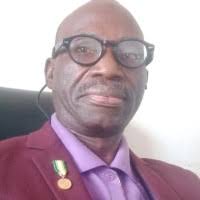
Dr. Bukola Lawal, a maritime economist, independent financial advisor, and chartered shipbroker, has stated that the alignment between Nigeria’s newly-approved National Marine and Blue Economy Policy and the International Maritime Organization’s (IMO) 2025 agenda presents a rare opportunity for the country to champion sustainable growth in the global maritime sector.
According to Dr. Lawal, the IMO 2025 agenda, which is focused on decarbonizing shipping, promoting environmental stewardship, and encouraging digital innovation, is in perfect synergy with Nigeria’s policy aimed at harnessing the economic value of its marine and inland water resources over the next decade.
Dr. Lawal emphasized that the synergy between IMO 2025 and Nigeria’s policy positions the country to become a leader in sustainable maritime practices. She explained that both frameworks share a common vision that includes environmental stewardship, economic diversification, and the integration of digital technologies such as electronic Bunker Delivery Notes (e-BDNs) to enhance operational efficiency and transparency.
“The synergy between IMO 2025 and Nigeria’s Blue Economy Policy offers a unique opportunity for Nigeria to emerge as a frontrunner in sustainable maritime practices,” she said.
Dr. Lawal urged government agencies to strengthen their institutional capacity to enforce the new policy, monitor compliance, and facilitate data sharing. She also encouraged shipowners and operators to invest in cleaner propulsion systems and retrofit their fleets to meet both national and international environmental standards. Terminal operators were advised to upgrade infrastructure to support green port operations, including shore power facilities, automated systems, and sustainable waste management.
In addition, Dr. Lawal called on liner shipping companies to reassess their fuel sourcing and vessel compliance strategies while supporting Nigeria’s maritime development through eco-friendly practices. Shippers and cargo interests were encouraged to embrace environmental compliance as a key component of their logistics operations. Chartering brokers and freight forwarders were advised to educate their clients on regulatory timelines and vessel standards, ensuring transparency in contract terms that reflect both IMO and national expectations.
She also identified the private sector as a crucial driver of innovation and investment, urging stakeholders to explore opportunities in green logistics, blue aquaculture, renewable marine energy, and sustainable port infrastructure.
Dr. Lawal concluded that the alignment of the IMO 2025 agenda with Nigeria’s National Marine and Blue Economy Policy represents a defining moment for the country’s maritime future.
“The convergence of these initiatives is a defining moment. Nigeria stands to benefit immensely if all actors embrace these reforms,” he added.
By embracing these reforms, Nigeria can unlock new avenues for economic growth, environmental sustainability, and global leadership in the blue economy.















